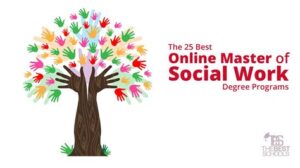Have you ever wondered why there aren't more women in STEM fields? It's a complex issue with multiple factors, including societal biases, lack of role models, and financial barriers. But one thing is for sure: scholarships can make a significant difference. By providing financial assistance, mentorship, and community, scholarships empower women to pursue their STEM dreams and break down the barriers that stand in their way.
The Importance of STEM Education for Women
Science, technology, engineering, and mathematics (STEM) education empower women with critical thinking, problem-solving, and analytical skills crucial for success in various fields. STEM opens doors to lucrative and fulfilling careers, fostering economic growth and innovation.
Despite its significance, women are underrepresented in STEM fields. Statistics reveal that only 28% of STEM workers are women. This gap limits the diversity of perspectives and hinders the full potential of scientific and technological advancement.
Promoting STEM education for women is essential to address societal needs and challenges. It cultivates a more inclusive workforce, fosters creativity, and drives groundbreaking discoveries that benefit society as a whole.
Challenges Faced by Women in STEM
Women in STEM face unique challenges that hinder their progress and participation. These challenges include:
- Stereotypes and biases: Gender stereotypes and unconscious biases can limit opportunities for women in STEM fields.
- Lack of role models and mentors: The absence of visible female role models and mentors can discourage women from pursuing STEM careers.
- Work-life balance: Women often face additional responsibilities outside of work, which can make it challenging to balance their careers and personal lives.
- Harassment and discrimination: Some women in STEM experience harassment or discrimination, creating a hostile work environment.
- Confidence gap: Women may have lower levels of self-confidence in their STEM abilities compared to their male counterparts.
Scholarships for Women in STEM: A Lifeline to Success
Scholarships specifically designed for women in STEM are a vital lifeline to success, helping to overcome the challenges they face. Scholarships provide financial assistance, mentorship, and networking opportunities that empower women to pursue their STEM aspirations.
Scholarships for women in STEM offer a range of benefits, including:
- Reduced financial burden: Scholarships alleviate the financial burden of higher education, making STEM education more accessible to women from all backgrounds.
- Increased self-confidence: Receiving a scholarship can boost women's self-confidence and motivate them to pursue their STEM goals.
- Access to mentorship and support: Many scholarships provide opportunities for mentorship and support, connecting women with experienced professionals in their field.
- Networking opportunities: Scholarships often involve events and networking opportunities that allow women to connect with other STEM professionals and build valuable relationships.
Types of Scholarships Available
There are numerous types of scholarships available for women in STEM, each with its own eligibility criteria and benefits. Some common types include:
| Scholarship Type | Eligibility Criteria | Benefits |
|---|---|---|
| Undergraduate scholarships | High school seniors or current undergraduate students pursuing a STEM degree | Tuition assistance, living expenses, mentorship |
| Graduate scholarships | Individuals pursuing a master's or doctoral degree in STEM | Tuition assistance, research funding, conference travel grants |
| Diversity scholarships | Underrepresented groups in STEM, such as women and minorities | Financial assistance, mentorship, career development opportunities |
| Need-based scholarships | Students with financial need | Full or partial tuition coverage, living expenses, books and supplies |

Eligibility Criteria and Application Process
Eligibility criteria for women in STEM scholarships vary depending on the scholarship provider. Common requirements include:
- Academic excellence: High GPAs and strong academic records are often required.
- STEM field of study: Scholarships are typically awarded to students pursuing degrees in science, technology, engineering, or mathematics.
- Underrepresented groups: Some scholarships prioritize women from underrepresented groups in STEM.
- Financial need: Some scholarships consider financial need in their eligibility criteria.
The application process for women in STEM scholarships typically involves submitting an online application, providing transcripts, and writing essays or personal statements. It is important to carefully review the eligibility criteria and application requirements before applying.
Benefits of Receiving a Women in STEM Scholarship
Receiving a women in STEM scholarship can have a profound impact on a woman's career and life. Benefits include:
- Financial relief: Scholarships can reduce the financial burden of higher education, allowing women to focus on their studies.
- Increased confidence and motivation: Receiving a scholarship can boost women's confidence and motivate them to pursue their STEM goals.
- Access to mentorship and support: Many scholarships provide opportunities for mentorship and support, connecting women with experienced professionals in their field.
- Networking opportunities: Scholarships often involve events and networking opportunities that allow women to connect with other STEM professionals and build valuable relationships.
- Career advancement: Scholarships can help women develop the skills and knowledge necessary for successful STEM careers.
Success Stories of Women who Received STEM Scholarships
Numerous women have achieved remarkable success in STEM fields thanks to the support of scholarships. Here are a few inspiring stories:
- Dr. Marie Curie: The first woman to win a Nobel Prize and the only person to win Nobel Prizes in two different scientific fields (physics and chemistry).
- Dr. Jane Goodall: A renowned primatologist and anthropologist who has dedicated her life to studying chimpanzees.
- Dr. Rosalind Franklin: A chemist and X-ray crystallographer whose work was instrumental in the discovery of the structure of DNA.
- Dr. Shirley Ann Jackson: The first African American woman to earn a doctorate in nuclear physics and the first woman to lead a major research university (Rensselaer Polytechnic Institute).
How to Encourage More Women to Pursue STEM Careers
Encouraging more women to pursue STEM careers requires a multifaceted approach involving:
- Challenging stereotypes: Challenging gender stereotypes and biases can help create a more inclusive environment for women in STEM.
- Providing role models and mentors: Visible female role models and mentors can inspire young women to pursue STEM fields.
- Promoting work-life balance: Policies and practices that promote work-life balance can make it easier for women to succeed in STEM careers.
- Addressing harassment and discrimination: Creating a culture that does not tolerate harassment or discrimination is essential for creating a welcoming environment for women in STEM.
- Building confidence: Encouraging girls and young women to develop self-confidence in their STEM abilities is crucial.
Role of Mentorship and Support Networks
Mentorship and support networks play a critical role in the success of women in STEM. Mentors can provide guidance, encouragement, and career advice.
Support networks, such as professional organizations and online communities, provide opportunities for women to connect with others in their field, share experiences, and access resources.
The Future of Women in STEM: A Brighter Tomorrow
The future of women in STEM is bright. With increasing awareness of the importance of diversity and inclusion, more



